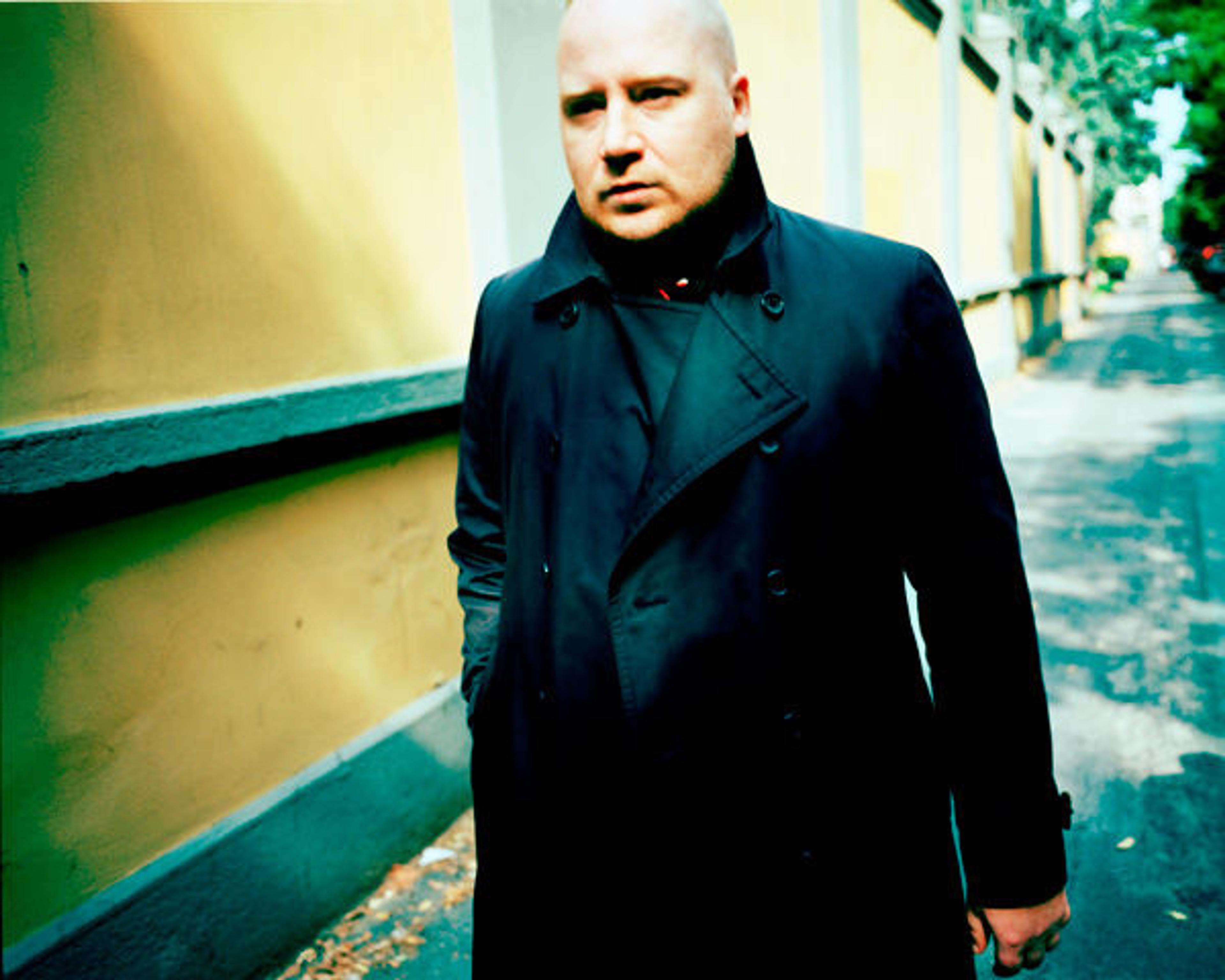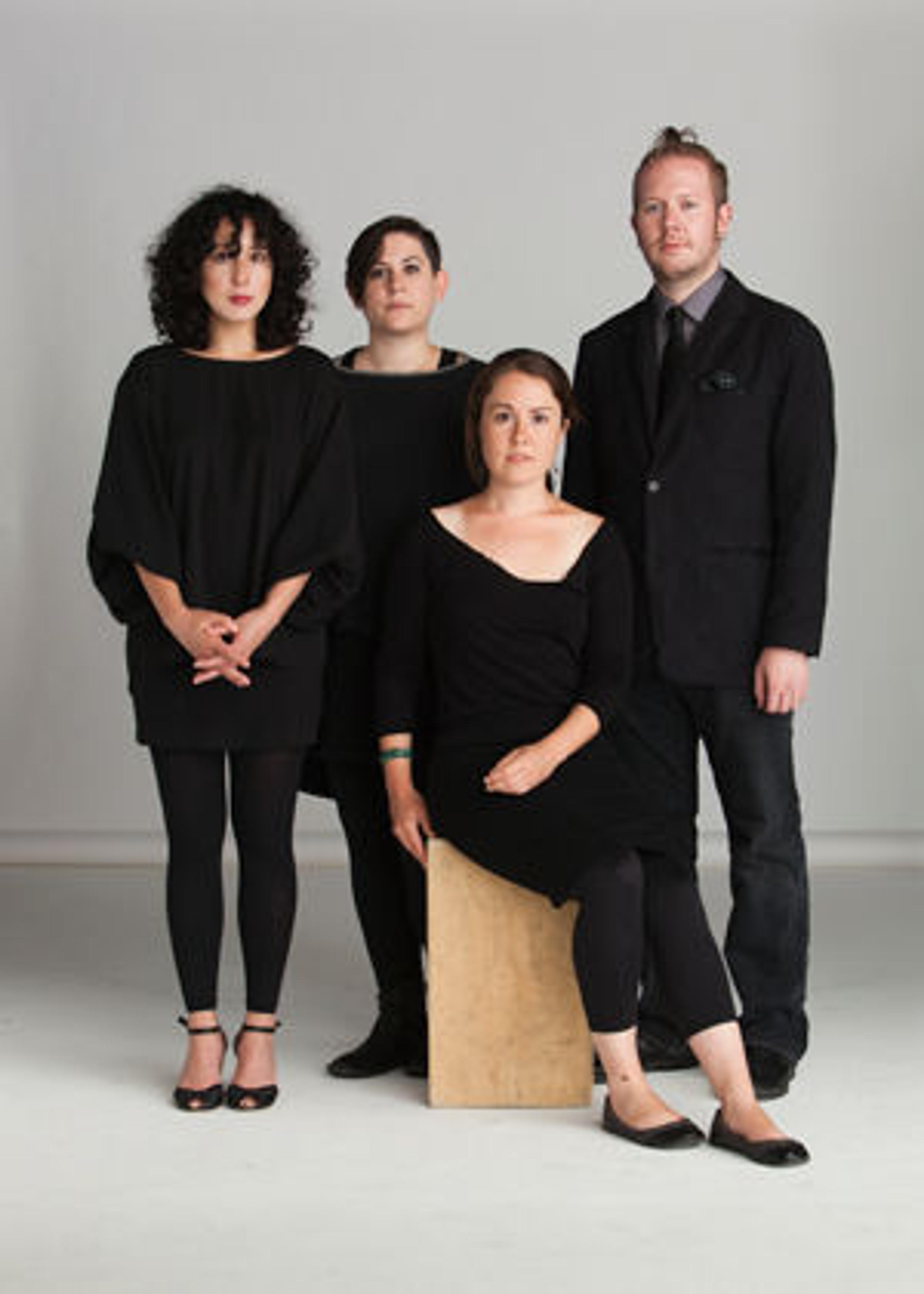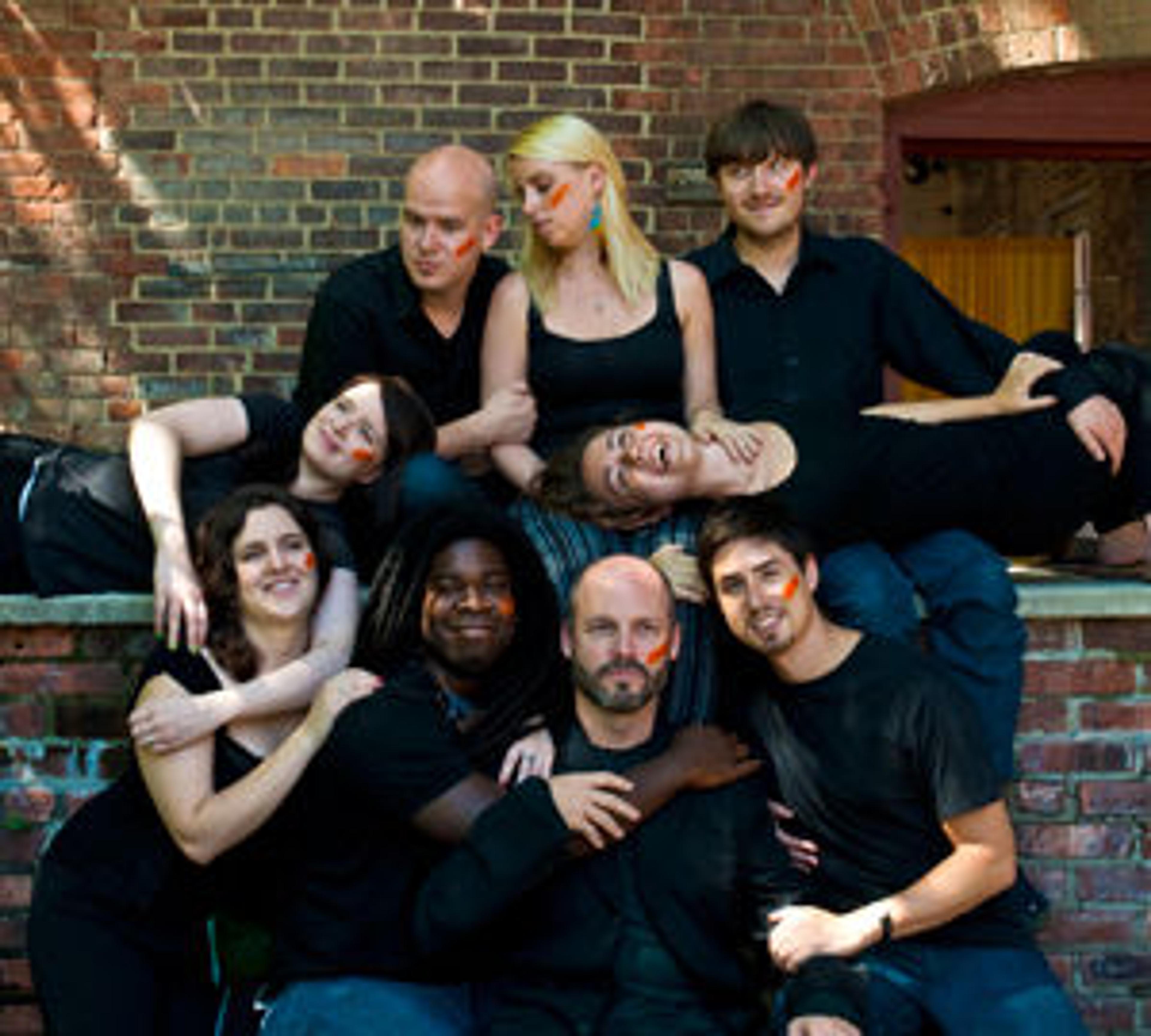
Jóhann Jóhannsson. Photo courtesy of the artist
«While many performances are greatly enhanced by the setting of the Met's Temple of Dendur in The Sackler Wing, the Met Museum Presents program on Tuesday, March 17, Drone Mass, is a particularly apt evening of music for the venue. This event will bring together the forces of Icelandic composer Jóhann Jóhannsson, the American Contemporary Music Ensemble [ACME], and the 2014 Grammy Award–winning vocal ensemble Roomful of Teeth for the world-premiere performances of two of Jóhannsson's latest works, Drone Mass—a contemporary oratorio for voices, string quartet, and electronics that uses texts based on the Coptic Gospel of the Egyptians—and Chaconne for solo violin.»
Drone Mass is the latest collaboration between Jóhannsson and ACME, specifically commissioned by the new-music group to celebrate their tenth anniversary. In a recent conversation with Clarice Jensen, ACME's artistic director and cellist, she voiced the group's excitement for both this commission and their upcoming performance in the Temple, saying that:
ACME is thrilled beyond words for the premiere of Drone Mass. We have toured with Jóhann a number of times, and the special closeness we feel to him and his music makes this project one of our most personally and emotionally fulfilling to date—in addition to this work fitting so perfectly well with The Temple of Dendur. It really is a perfect constellation, and I feel so very lucky that it all has come together this way.
Jóhannsson is highly in demand as a composer for both the stage and screen, and recently won a 2015 Golden Globe for Best Original Score for his work on the Stephen Hawking biopic The Theory of Everything, a score for which he also received nominations for BAFTA and Academy Awards. His work spans the worlds of neoclassicism, minimalism, and electronic music, and in his deep, introspective compositions one can easily hear these diverse elements cohabitating in the music's rich textures. I recently had the chance to speak with Jóhannsson about his compositional process, what he looks for in collaborators, and the inspiration for these two works.
Left: American Contemporary Music Ensemble. Photo by Ryuhei Shindo

Michael Cirigliano: Your music is highly regarded for deftly crossing genres, and your roster of collaborators includes musicians from the pop, rock, and electronic realms. How many different influences will be at work in Drone Mass, given that both ACME and Roomful of Teeth are well known for embracing the new and avant-garde?
Jóhann Jóhannsson: I like to work with people that I find interesting and stimulating artistically, and the field in which they're perceived to work is secondary and not that relevant to me. Drone Mass is a distillation of a lot of influences and obsessions I've had over the last few years. I've wanted to write a vocal piece for a long time, and although I've written shorter pieces before, this is the first time I'm presenting a longer work for voices.
Michael Cirigliano: The inclusion of electronic drones has been a running thread in your compositions. What drone elements can audience members expect to hear in this new work?
Jóhann Jóhannsson: The drone is a very fundamental part of my music, although it's not always present. There are pieces where I rely heavily on it and there are pieces where I don't, but using it as a foundation is something I turn to quite often. Very early on in my career, I read about John Cage's experience in Harvard's anechoic room, where the only sound you hear in that totally silent chamber is the high-pitched buzz of your nervous system and the low drone of your circulating blood. These words had a significant impact on me—this idea of these two fundamental, ever-present drones.
Michael Cirigliano: From your work with the artist collective Kitchen Motors to your frequent output of film scores, collaboration is a running thread in your career. Drone Mass was commissioned by ACME in celebration of their tenth anniversary. What about the group and Roomful of Teeth excited you about this particular collaboration?
Right: Roomful of Teeth. Photo by Nicholas Whitman

Jóhann Jóhannsson: I've worked with ACME several times and they are amazing performers—in fact, they are some the most open and intuitive players I've worked with, as well as being very strong technically. Roomful of Teeth are similarly a fascinating group of musicians. I haven't heard them in concert, but I was very excited by their recorded work and I'm very happy and honored to have this opportunity to work with them.
Michael Cirigliano: The work's text is derived from the Coptic Gospel of the Egyptians. What aspects of this text especially engaged you during the compositional process?
Jóhann Jóhannsson: The text is based on a fragment of an ancient Gnostic hymn, a significant part of which is a series of seemingly meaningless vowels. Besides being interested in Gnosticism in general, I found this aspect of the text very interesting as material to use in vocal composition.
Michael Cirigliano: This program also features the world premiere of Chaconne for solo violin, which one assumes is a reference to the famous final movement of Bach's Violin Partita No. 2 in D Minor. Will your work be a modern re-imagining of the work, or is the connection in name alone?
Jóhann Jóhannsson: The violinist Yuki Numata Resnick commissioned me to write the piece as part of a series of chaconnes she is commissioning. I don't really reference Bach at all in my piece, actually. I conceived it as a fairly open, almost aleatoric piece, one where certain harmonic relationships are structured as sets to be explored by the soloist, using certain instructions but with a great deal of freedom as well.
Michael Cirigliano: Given your profile these days as an active film composer, do you find that there are certain challenges when returning to composing music for the concert stage, or do you approach all of your work in the same manner?
Jóhann Jóhannsson: Fundamentally it's the same way of working for both, but filmmaking is a collaborative art and I regard the director as my artistic collaborator, much like I how would regard a fellow musician. So, writing film music is a bit like being in a band—you have to take other opinions into consideration, and you're part of a team that's creating a larger work. When writing my own work, I'm alone, faced with a blank slate, and I have to create my own parameters and restrictions. In this sense it's very different. Even though the practical parameters are different, the music itself always comes from the same place.
To purchase tickets to Drone Mass, or any other Met Museum Presents event, visit www.metmuseum.org/tickets; call 212-570-3949; or stop by the Great Hall Box Office, open Monday–Saturday, 11:00 a.m.–3:30 p.m.